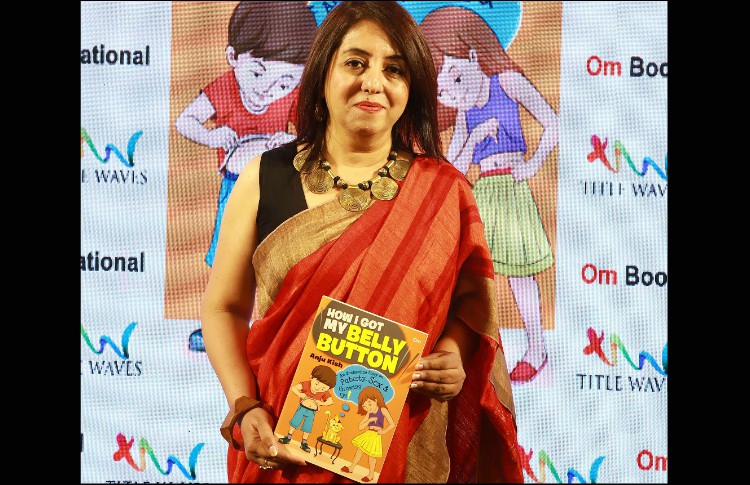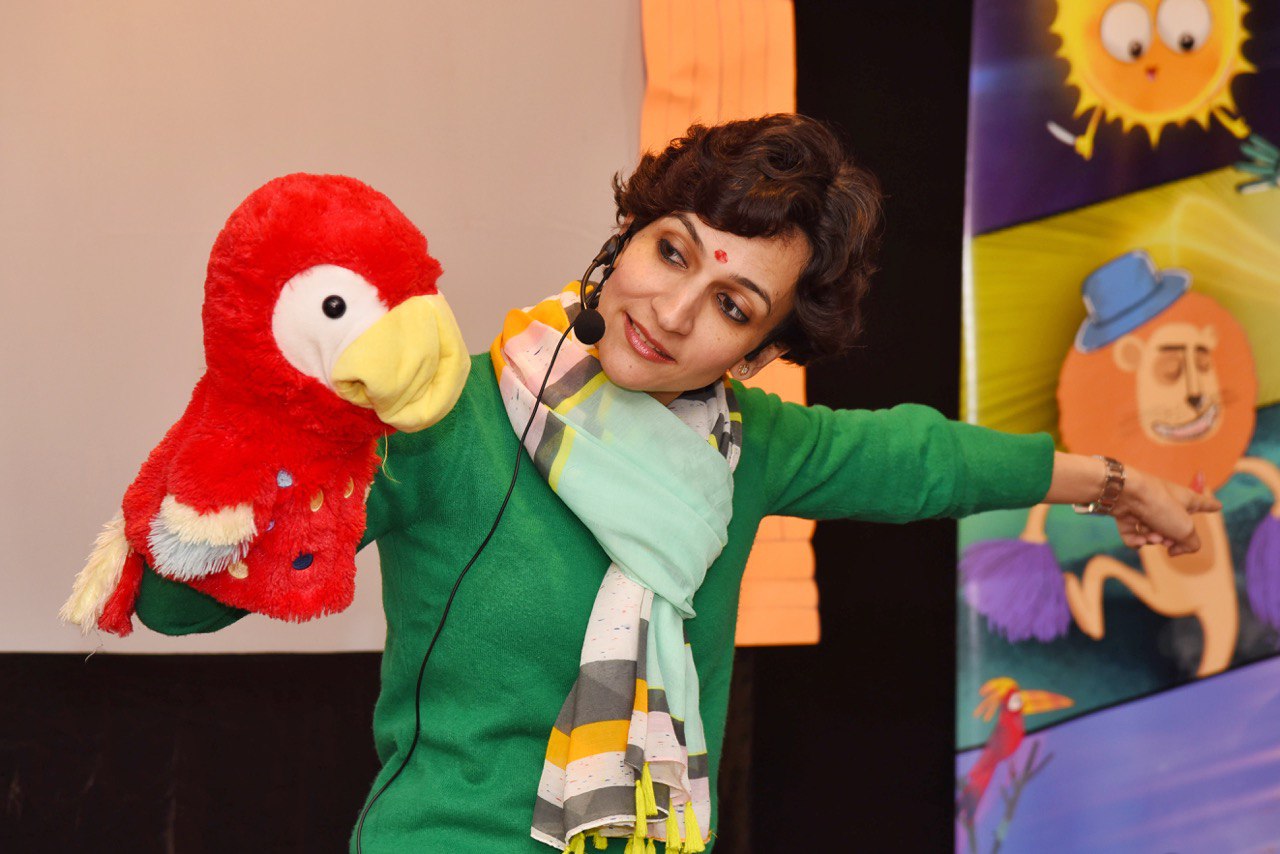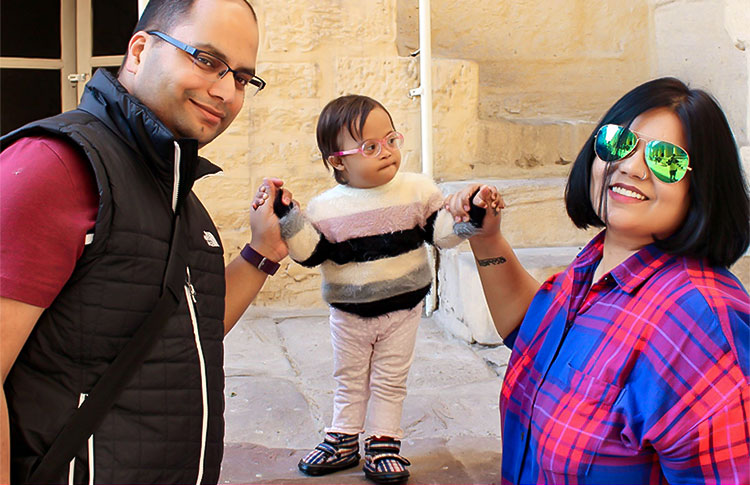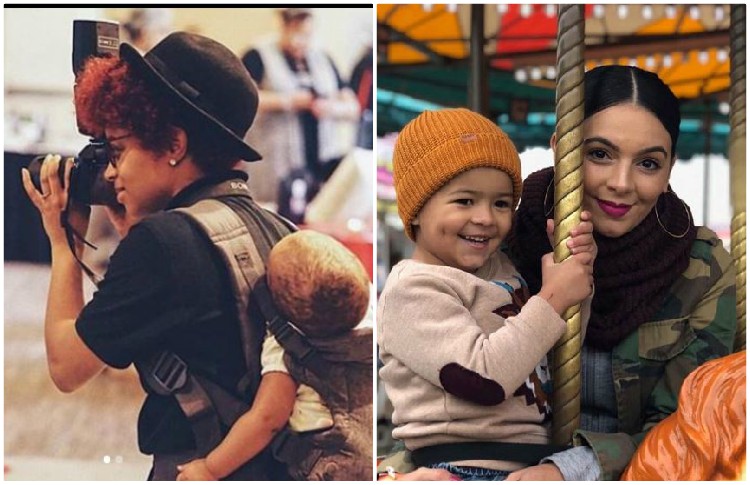Teach Your Kids That Looks Won’t Define Them, What Matters Is Who They Are As A Person: Author Anju Kish
- IWB Post
- November 14, 2019

Delayed awareness- a phenomenon most individuals in India are plagued with, especially when it comes to sex education. How many real stories have you read, individuals you personally know who realized years later that they were victims of child sexual harassment? Why? All credits go to our Indian sanskaar, which tend to go all red at the mere mention of the word ‘sex’, prefer to not teach a child how to tell the difference between good touch and bad touch.
In an attempt to make sure that the coming generations don’t suffer due to this apparent lack of important information, Anju Kish, an author and sexuality educator, started her company UnTaboo dedicated to SEX-SEXUALITY-SAFETY education. She conducts workshops, plays, and talks for children and their parents to break the taboos and misconceptions around the topic.
Her latest book ‘How I Got My Belly Button’ explains the concepts of puberty, sex and growing up to kids in a simple, heart-warming and witty way, through a charming little story. It is a book which gently answers all their questions and, also opens doors for parents and kids to start discussions on these sensitive topics.
Excerpts from the interview:
Often, while growing up, boys and girls feel stressed and worry about their changing body, further worsened by the ‘perfect body image’ that media has propagated. So, how can one make body positivity a part of the first puberty talk with a child?
It’s not easy being a child in this era – there are so many pressures, expectations & notions about how they should look and behave. In this scenario, it’s very important to pass on a very strong message to kids that everyone is different and it’s normal to be different.
Puberty is a tough time for children and as a parent one should prepare them for it before it happens. In my book How I Got My Belly Button, the parents instill in their kids Neal & Kiara, a lot of positivity about the various changes which will happen to their bodies. They also talk to them about the fact that looks do not define you – it is who you are as a person or your talent, which will attract people towards you. You can also give your children examples of celebrities, sports people who have made great names for themselves even though some may call them not good looking, but they never let these snide remarks affect them and established their own identity.
Talking about parents, we often see that as soon as girls hit puberty, their parents literally prohibit them from playing with boys, or engaging with them. What would be your suggestion to such parents?
Getting attracted to each other when puberty hits is natural. Teach them how to handle those crushes, rather than prohibiting them from interacting, because whether you do so or not, they will still have crushes and might even rebel and go to the other extreme of the spectrum.
Parents of girls keep them away from boys in fear of the way they would behave. So, what important talk regarding this should the boys get?
It’s unfortunate that a lot of parents still don’t talk to their kids about puberty. They are forced to address this topic with girls because they have to explain the concept of periods to them. However, with boys, the majority of parents don’t broach the topic at all. Its extremely important to have the ‘Puberty Talk’ with the boys too, because they go through their own set of specific changes, which can be traumatic and confusing too.
Moreover, it’s very important to tell them about the changes girls go through at puberty too. This develops empathy and understanding about not teasing a girl if they see her with a blood stain on her skirt, helping mom or sister at home when they have their periods and are going through mood swings or cramps, not giving slang words to breasts and understanding that it’s not a sexual part of the woman’s body, but a source of nourishment for a baby. These talks create gender sensitization and positivity.
Give us an age-wise guide to what to say and what not to say, when talking about sex with a child.
At UnTaboo, we have age wise workshops which are very interactive, informative and fun. The end goal is to make the children walk out with a lot of positivity, preparedness and sense of responsibility. These are the age benchmarks we use –
Age 2 – 5
So, to begin with, very early on, teach your kids the correct names of all their body parts including the genitals – don’t give them pet names. Slowly introduce your child to the concept of privacy & move on to explaining the different kinds of touches and the feelings they evoke.
Age 6 -8
Teach them the difference between the body of a male and female. Give them ownership of their body and the right to refuse physical touches from people. Teach them about the safe and unsafe touches and give them tips on how to protect themselves. At around 8, you should also tell them that their body is going to change soon.
Age 9-12
Time for the Puberty talk. Take them in detail through the differences between boys and girls physically, knowing their own body, the changes which will come at puberty both for girls and boys– physical, emotional and social, changing relationship with parents and how to build bridges.
Age 13-15
The concept of the sexual act, reproduction, pregnancy, birth, sexual changes at puberty, repercussions of actions, porn, masturbation, sexual abuse etc.
Age 16 -18
This should be more of a discussion based sessions on a variety of topics – sexual orientation, dating, consent, teenage pregnancy, rape, gender roles & empathy etc.
It’s important to remember that Sex Education does not mean a talk on sex alone. It is a wide term which includes a whole lot of topics under its umbrella and also tackles the emotional and psychological aspect.
In this tech savvy era, more often than not, children have already gathered an incomplete knowledge about sex and their sexuality from the internet. How can we make the internet our friend during sex education?
It is true that millennials are digital natives & get all their information online, including information on sex and sexuality. This can be potentially harmful as the information isn’t necessarily age-appropriate or culturally aligned. We cannot expect children to filter out information by themselves either & neither can we completely ban or monitor their access to the internet but there are a couple of things we can do to make the internet our friend during sex education.
Firstly, I would recommend that the parents do some research themselves & pull out child-friendly videos or reading material which they can watch or read with their kids – together as a family. This will not only help them create a more open & honest relationship with their kids but they would have effectively satisfied their kids’ curiosity on these topics.
Secondly, explain that all the information on sex & sexuality that your kids may come across on the internet isn’t factual. Tell them about fake news. If you suspect that they’re watching porn, be sure to make them aware of the fact that it isn’t an actual depiction of the sexual act. Don’t be afraid to tell them how exploitative the porn industry is. Our kids are growing up in a much different world than we did, they have a right to know about the reality of it.
Lastly, ensure that you have a talk on internet safety with your kids. Don’t hesitate to put in filters on all electronic devices and set boundaries about when and where your child can use these devices. Have a list of all their passwords especially when they’re younger.
The internet definitely has the potential to increase knowledge and have a positive effect on our kids’ behaviors, provided we guide them through it. It can also be a good source of Sex Education for the kids with learning, developmental or physical disability or even the LGBTQ+ youth for whom there may not be easy access to offline Sex Ed programs. However, there are tons of sites providing all kinds of Sex Education & the onus is on the parents & teachers to help the kids navigate this space.
Coming to the importance of sex ed, how to give a gender-neutral sex talk, such that a girl or boy does not end up feeling ‘not normal’ if they find themselves attracted to someone of the same gender?
We at UnTaboo believe in an inclusive & gender sensitive form of sex education. We cover topics such as gender identities & sexual orientation in our workshop. We ensure that we have a very positive representation of LGBTQ+ people and pass on the message that we should not judge people because they’re different. We also create empathy by giving situations – what if your best friend turns out to be gay? Will it change who he is as a person? Will it change how you feel about him? Kids usually respond well to it. We also encourage them not to use sexualities or gender identities as abuses.
We may have grown up with a certain belief-system & may find it difficult to let go of certain prejudices. However, it is crucial that we don’t pass them on to our future generations to ensure that it is an equal society for all.
So true. So, in your latest book, are their moments which are inspired by your life?
‘How I got my Belly Button’ is special and very close to my heart. I started writing it when my son launched a tirade of questions at me and I struggled to answer it age appropriately. My journey into the field of sex education started from there.
The characters in the book, Neal & Kiara are twins and curious about how a baby gets into the tummy. Their parents decide to take the bull by the horns and give them a complete talk on sex education. This is exactly what I and my husband did with my boys and a lot of scenes from the book, the little pranks, the fun moments are inspired from my experiences with my two boys.
- 0
- 0













